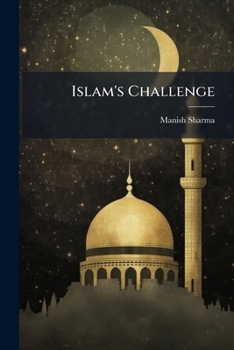Islam's Challenge: Jihad and Terrorism
In the contemporary environment of Global War on Terror, there is a growing perception of a linkage between Islamic teachings and terrorism. The purpose of this thesis is to examine the vulnerability of Islamic doctrine and teachings to exploitation by terrorists. It addresses the primary question, whether Islam is vulnerable to being exploited by terrorists. It focuses on various concepts of the Islamic doctrine that seems to be used by various terrorist groups to justify their cause, motivate their cadres, garner support, and achieve their end state. To answer the primary question, this thesis focuses on three secondary questions: (1) What are the aspects of Islam which seem relevant to terrorism perpetrated in its name? (2) What are the historical aspects of Islamic revivalism, and is there a link between Qur'anic interpretations and modern terrorism? (3) Is terrorism perpetrated in the name of religion alone or are there other causes? While analyzing the data for these questions, this thesis considers multiple perspectives including those of Western scholars, Islamic scholars, Muslim community, international organizations, and terrorists themselves.
This work has been selected by scholars as being culturally important, and is part of the knowledge base of civilization as we know it. This work was reproduced from the original artifact, and remains as true to the original work as possible. Therefore, you will see the original copyright references, library stamps (as most of these works have been housed in our most important libraries around the world), and other notations in the work.
This work is in the public domain in the United States of America, and possibly other nations. Within the United States, you may freely copy and distribute this work, as no entity (individual or corporate) has a copyright on the body of the work.
As a reproduction of a historical artifact, this work may contain missing or blurred pages, poor pictures, errant marks, etc. Scholars believe, and we concur, that this work is important enough to be preserved, reproduced, and made generally available to the public. We appreciate your support of the preservation process, and thank you for being an important part of keeping this knowledge alive and relevant.





